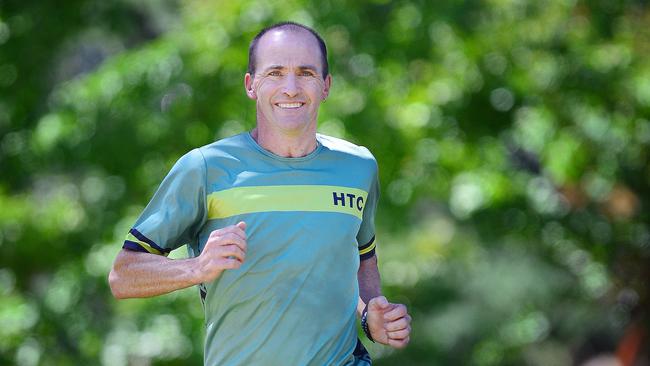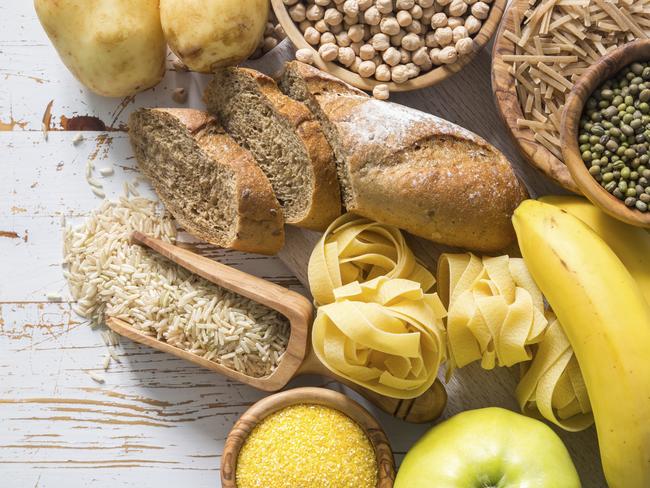Gut-training could give athletes an edge over the competition
GUT-training could give athletes the edge over the competition, with results of a new trial showing the stomach can be coached to tolerate more during races, boosting performance.

VIC News
Don't miss out on the headlines from VIC News. Followed categories will be added to My News.
GUT-training could give athletes the edge over the competition, with results of a new trial showing the stomach can be coached to tolerate more during races, boosting performance.
Just two weeks of “force-feeding” small amounts of carbohydrates reduced symptoms that make fuelling the body during exercise difficult.
Endurance athletes often experience uncomfortable symptoms, ranging from cramps to nausea and vomiting, forcing them to slow down or pull out of events.
Eating small amounts of carbohydrates during a marathon or triathlon is essential to maintaining energy levels, but it can aggravate an already stressed stomach.
Up to 20 per cent of people who compete in half marathons and triathlons complain of gastrointestinal symptoms and about 60 per cent of competitors in marathons, ironman and ultra endurance events are afflicted.

But Dr Ricardo Costa, from Monash University, has shown the gastrointestinal tract can be trained to reduce gut complaints, absorb more nutrients and boost performance.
In a trial, 25 Victorian athletes were given carbohydrate gel-discs every 20 minutes throughout a one-hour running exercise.
At the end of the gut-training, symptoms were reduced by 60 per cent and performance was boosted by 5 per cent.
Dr Costa said endurance exercise stressed the gut, causing the gastrointestinal system to stop functioning and blood flow to divert from the stomach to the muscles.
“Beside muscle tears it’s the main problem that causes the athlete to slow down, stop or even withdraw from competition,” he said.
“Athletes need to eat for these long races to keep their energy levels up, but they just can’t because the gut is compromised,” he said.
By “belting the gut” with food during training, they found it emptied more rapidly into the intestines and the stomach absorbed more nutrition from the food.
When Darren Cronshaw, 45, took up endurance exercise four years ago he discovered the importance of nutrition.
But he would often “under or over-fuel” so he would either hit a wall or get a stitch and cramp up.
“Now I know if I go for a race I can tolerate 72g of carbs an hour and if I have less, I am selling myself short and if I have more, my stomach wouldn’t tolerate it,” he said.


